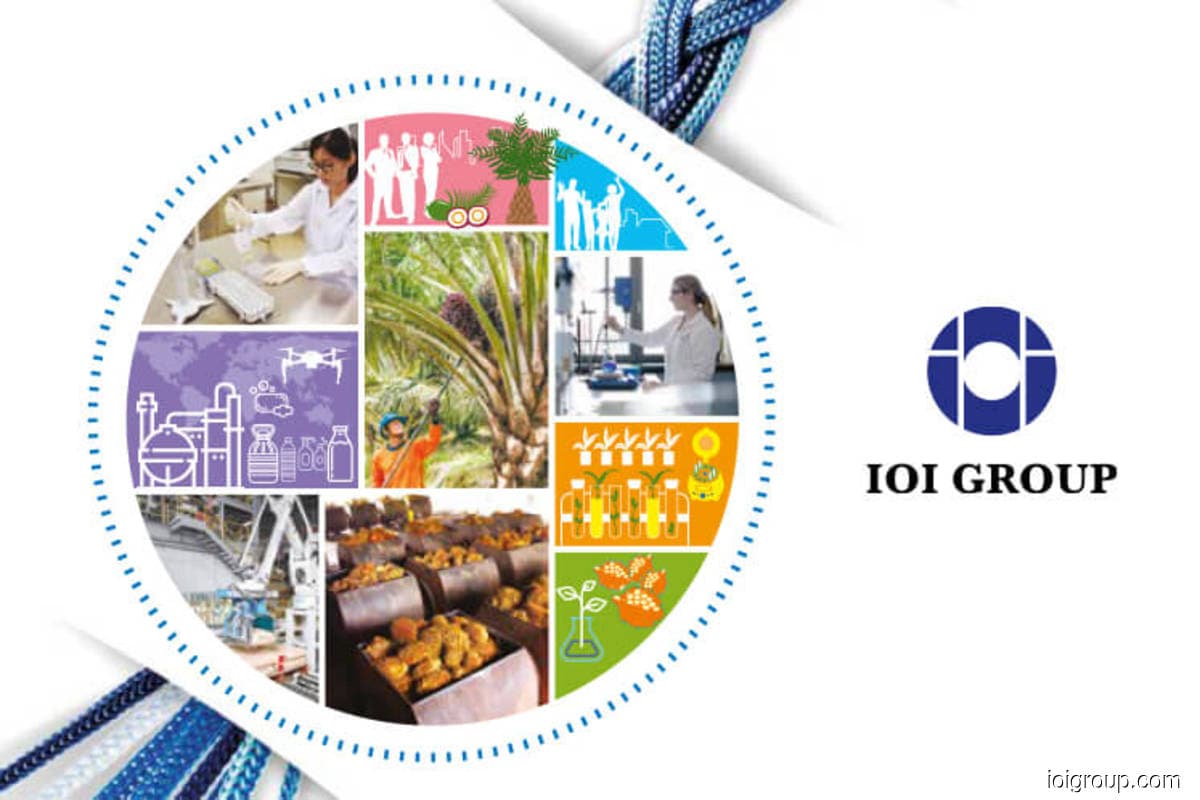
KUALA LUMPUR (Sept 30): IOI Corp Bhd group managing director and chief executive Datuk Lee Yeow Chor said on Friday (Sept 30) the oil palm planter expects its financial performance in current financial year ending June 30, 2023 (FY23) to be healthy "albeit not as good as" its FY22 performance as it weighs external factors including the Russia-Ukraine war and as crude palm oil (CPO) prices decline from historical high levels.
"The financial performance of our plantation segment is expected to decline due to the decline in CPO price from the historical high levels during FY22 as well as the elevated cost of inputs such as fuel and fertiliser.
"However, we anticipate CPO price will still be supported by supply constraints and its price competitiveness against other edible oils.
"Therefore, we expect the plantation segment to perform satisfactorily in the new financial year (FY23)," Lee wrote in IOI's latest annual report, which was filed with Bursa Malaysia on Friday.
Globally, Lee said the health of the global economy will largely depend on the duration of the Russia-Ukraine war.
He said China’s economy is also a matter of concern as the country pursues its zero Covid-19 policy-driven movement restrictions amid a slowdown in the nation's property sector.
"Malaysia’s economy will be adversely affected by these external conditions as the lower global economic growth would dampen its exports.
"Nevertheless, despite the external headwinds, the domestic economy is expected to improve further following the shift to the endemic phase of Covid-19, reopening of international borders and normalisation of economic activities," Lee said.
Besides upstream oil palm plantation operations, IOI is also involved in downstream operations such as refining of CPO and palm kernel oil, and processing of refined palm oil and palm kernel oil into oleochemicals as well as specialty oils and fats products.
On the oleochemical sub-segment, Lee said IOI anticipates oleochemical demand from China will be soft due to its zero-Covid-19 policy, and that oleochemical production cost will stay elevated due to high energy prices.
"Nevertheless, with our new fatty acid and soap noodle plants coming on stream, our sales volume in FY23 is expected to increase by double-digit percentage albeit with margins lower than the high levels achieved in FY22.
"As for our refinery sub-segment, we expect the refining and fractionation margins to be volatile and decline from the present high levels as the CPO export duty drops in tandem with the CPO price.
"Notwithstanding that, demand for palm oil will still be resilient to make up for the lower sunflower oil supply which is expected to persist into year 2023," he said.
On IOI's specialty fats sub-segment which involves IOI's associate company Bunge Loders Croklaan Group BV (BLC), Lee said satisfactory performance is expected for FY23 as that sub-segment benefits from favourable demand and BLC’s supply chain capability.
He, however, said the operating environment will continue to present challenges such as high energy cost and sporadic pandemic related lockdowns in China.
At Bursa on Friday, IOI's share price was unchanged at RM3.78, which brings the group's market value to about RM23.47 billion based on IOI's latest-reported number of outstanding shares at 6.21 billion.
Looking back, IOI's FY22 financials had improved. The company's 4QFY22 net profit rose to RM541.8 million from RM359.4 million a year earlier, according to IOI's Bursa filing on Aug 23, 2022.
For the full-year, IOI said cumulative FY22 net profit climbed to RM1.73 billion or 27.74 sen a share from RM1.39 bilion or 22.26 sen a share a year earlier.
In commodity markets, CPO prices have fallen substantially to less than RM3,500 a tonne currently from over RM8,000 a tonne in March 2022.
At Bursa on Friday, CPO price for November 2022 rose RM71 to RM3,375 a tonne as of 11.35am.
Looking back, CPO prices topped RM8,000 a tonne for the first time on March 1 as consumers rushed to buy CPO amid a shortfall in sunflower oil caused by the ongoing escalation of the Russia-Ukraine war after Russia invaded Ukraine on Feb 24.